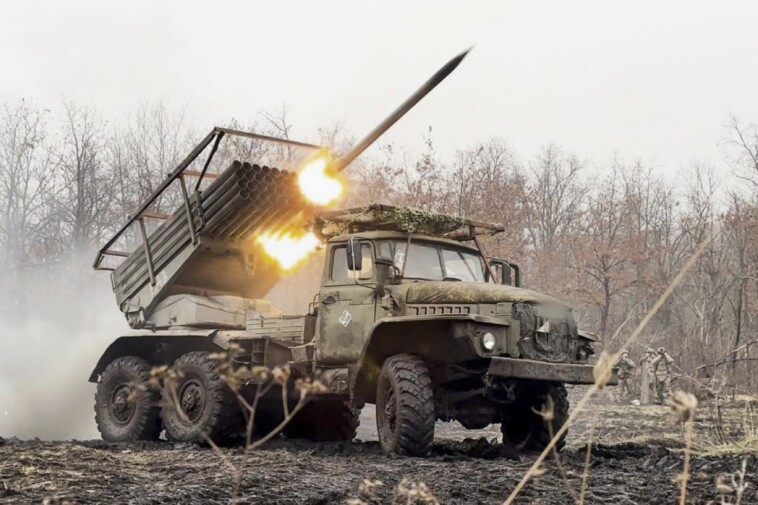A cease-fire in Ukraine will result in Russia re-deploying more than half of its frontline troops to NATO’s borders, and will massively increase the security threat in the Baltic, defense ministers of the small former Soviet states warned.
Of the estimated 600,000 Russian troops believed to currently be in Ukraine, at least 300,000 of them would likely be sent to the borders of Estonia, Latvia, and Lithuania, senior politicians in those countries claimed.
Those states are the smallest NATO member states that border Russia, with a combined population of about 6 million people.
“We all understand that when the war in Ukraine will be stopped, Russia will redistribute its forces very quickly,” Estonia’s Defense Minister Hanno Pekvur told the Financial Times. “That means also the threat level will increase significantly very quickly.”
Tensions in the region remain at record highs over fears Russia will use the halt in fighting to pressure the other western-aligned countries on its borders, including Finland.
“Let’s not have any illusions. Let’s not lie to ourselves that Russia is going to be done after Ukraine,” Lithuania’s Defense Minister Dovilė Šakalienė told the Financial Times this week. “Russia will use this time following a cease-fire to speed up its military capabilities. They already have a huge, battlefield-trained army, which is going to get even bigger.”
Moscow is expected to hold large-scale military exercises close to NATO’s Baltic borders in both Russia and Belarus this fall.
Held every four years, the “Zapad” drills simulate a conflict between Russia and NATO and see tens of thousands of troops, aircraft, and machinery deployed.
This year’s exercises will be the first held since the Russian invasion of Ukraine over three years ago.
The Baltic leaders also warned that putting NATO member states’ troops in Ukraine for a peace-keeping mission would also risk “jeopardizing” security in the region.
“We cannot jeopardize the security of the eastern flank of NATO,” Pekvur said. “We cannot fall into the trap that our forces are somehow fixed in Ukraine. Then we will have risks at our border.”
Eastern NATO members Poland and Romania, as well, have warned they cannot commit to deploying their troops to Ukraine at the expense of their own security in the event of a ceasefire.
Those claims follow warnings from Germany this week that Russia could be prepared to launch a full-scale military attack on a NATO nation in the coming years.
At present rates of military spending, Russia will have the military capability to wage “large-scale conventional warfare” by the end of this decade, Germany’s intelligence service BND warned on Friday.
“Russia sees itself in a systemic conflict with the West and is prepared to implement its imperialistic goals through military force, even beyond Ukraine,” the report’s authors wrote, citing recent intelligence findings, satellite imaging and the latest economic analysis.
Keep up with today’s most important news
Stay up on the very latest with Evening Update.
Thanks for signing up!
President Putin’s regime has been under heavy economic sanctions since his illegal invasion of Ukraine in February 2022, but they do not appear to have sufficiently hampered Russia’s rearmament, Lithuania’s State Security Department (VSD) warned in a leaked report this week.
Russia currently lacks the capability for “waging a large-scale conventional war” against NATO, but it has enough resources “to launch a limited military action” against one or more NATO countries, the VSD said.
“While Western sanctions had negatively impacted the Russian defense industry, the production volume of artillery shells, missiles and other crucial ammunition categories continued to increase year by year,” the leaked report went on.
Russian military spending is projected to reach approximately $130 billion this year, with plans to recruit up to 1.5 million additional soldiers by 2026, Lithuanian authorities warned.
The news comes as Ukraine has launched a second incursion in Russia after losing its grip on the territory it conquered in Kursk following the faltering of US-led peace talks.
Reports that President Trump is “pissed off” at Putin over the stalemate in progress in the peace talks emerged on Sunday, with the US threatening stiff oil tariffs on Russia.









